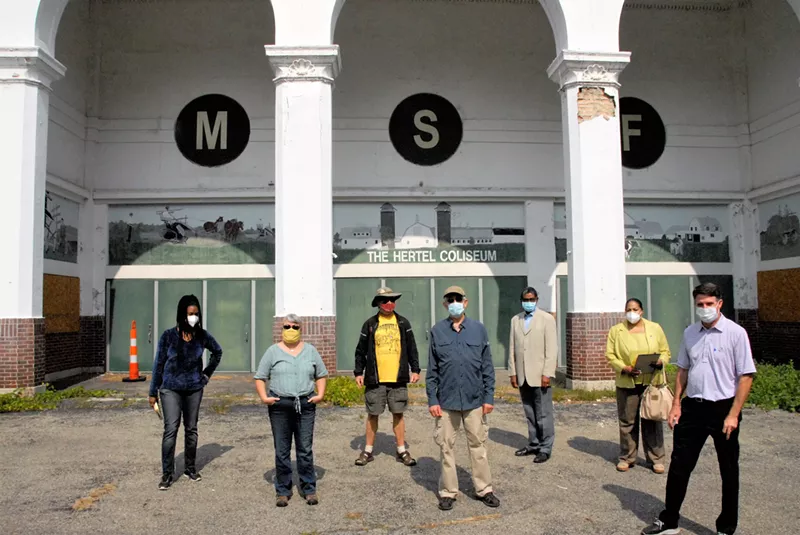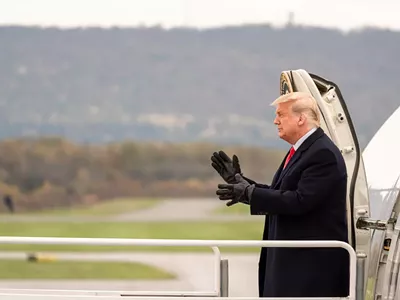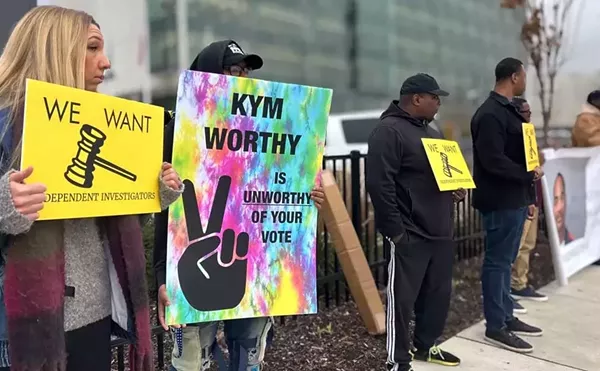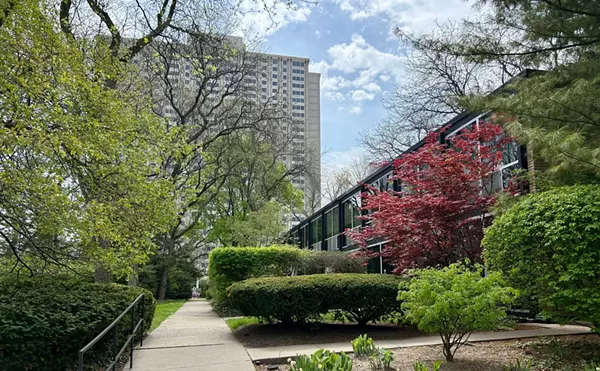
Audio By Carbonatix
[
{
"name": "GPT - Leaderboard - Inline - Content",
"component": "35519556",
"insertPoint": "5th",
"startingPoint": "3",
"requiredCountToDisplay": "3",
"maxInsertions": 100,
"adList": [
{
"adPreset": "LeaderboardInline"
}
]
}
]

State Fairgrounds Development Coalition
State Fairgrounds Development Coalition members (from left): Tonya Phillips, Marya Sosulski, Gary Hanafee, Frank Hammer, Al Martin, and Adrienne Warren.
After being delayed by an eleventh-hour lawsuit from community activists, the sale of the Michigan State Fairgrounds is now back on track to convert the 142-acre site into a $400 million Amazon distribution center.
A Michigan appeals court intervened in the case. On Nov. 3, while most of the country was preoccupied with election results, the appeal court ruled that a Wayne County circuit court judge had erred in granting the temporary restraining order that halted the sale late last month.
Last month, the Detroit City Council approved the $9 million sale price for the former site of the city’s beloved state fair. However, before Detroit could close on the deal with the developers, the community activists at the State Fairgrounds Development Coalition interrupted the process with a lawsuit.
The legal back-and-forth is the latest chapter in the years-long fight over the fate of the fairgrounds.
Among various critiques of the fairgrounds sale, the coalition’s suit accused the city of creating a sweetheart deal for the developers that was intentionally structured to excuse the buyers from adding a Community Benefits Ordinance to the project. A community benefits package is only required when public financing is given to a private developer; in the case of the fairgrounds, the deal was announced as a straightforward transaction without the aid of tax incentives or abatements.
At least, it appeared that way. In an October lawsuit, the State Fairgrounds Development Coalition argued that the city had indeed granted public financing to the project, not through tax incentives, but by lowering the sale price of the fairgrounds by at least $2 million. The suit alleged the city relied on an appraisal that “understates the fair market value” of the fairground site.
The city, meanwhile, contended that the sale price was actually $16 million when adding the value of a $7 million transit center and the costs of environmental remediation and demolition.
The timing of the deal also came into play. In an affidavit filed with the city’s response to the coalition lawsuit, Lucas Polcyn, Detroit’s Deputy Group Executive for Jobs & Economic Growth, defended the city’s appraisal and warned that the developers and Amazon could back out of the deal if the agreed-upon timeline was halted by litigation.
“Any further delay could threaten the entire project,” Polcyn warned.
With the restraining order lifted, the project now appears to be heading for a final sale. In a statement, the State Fairgrounds Development Coalition said it was “disappointed” by the court of appeals ruling.
“We know that we are on the right side of history and we will continue to stand against these harmful, no-bid, no-disclosure, ‘rocket-docket’ sales of our public land,” the statement read. “There are more processes that need to occur before Amazon can move in. Just like our advocacy won concessions in the first phase, we will continue to advocate for the community every step of the way.”
But for Detroit, the deal is effectively done. In an email, city spokesman John Roach tells Metro Times that the city’s attorneys “expect the closing shortly and expect work to start immediately thereafter.”
Stay on top of Detroit news and views. Sign up for our weekly issue newsletter delivered each Wednesday.





